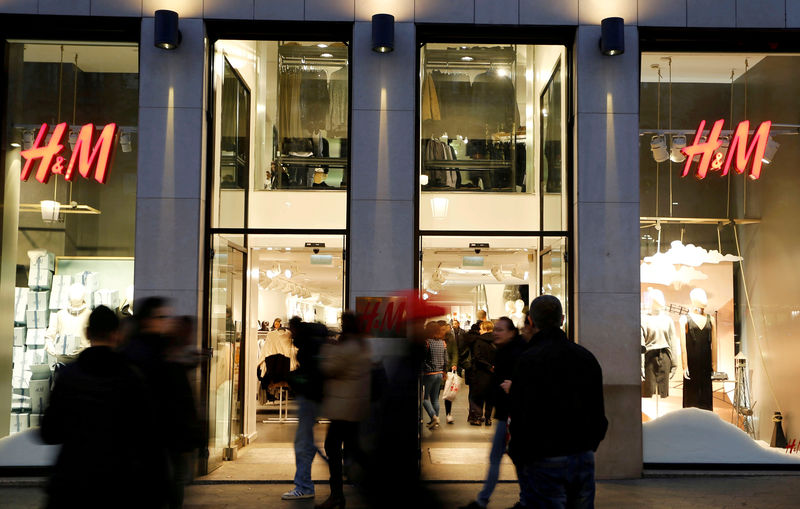STOCKHOLM (Reuters) - Budget fashion retailer H&M (ST:HMb) reported a smaller than expected decline in pretax profit for the latest quarter as tight control of costs helped to offset the impact of soft sales.
H&M, the world's second-biggest fashion company after Zara owner Inditex (MC:ITX), also said it would launch a new brand, slightly more upmarket, in the second half of the year.
H&M said conditions remained very tough in many key European markets and in the United States, with rapidly changing shopping behaviour and expectations.
Pretax profit in the December-February period fell to 3.21 billion crowns (290.96 million pounds) from a year-earlier 3.33 billion, against a mean forecast for 2.87 billion seen in a Reuters poll of analysts, helped by cost control and currency translation effects.
H&M shares gained 2 percent in early trading.
"To meet the rapid change that is going on in fashion retail we need to be even faster and more flexible in our work processes, for example as regards buying and allocation of our assortment," Chief Executive Karl-Johan Persson said.
"We are therefore investing significantly in our supply chain, such as in new logistics solutions with greater levels of automation, but also in optimising our lead times."
H&M said local-currency sales in the first 28 days of March, the first month of its second financial quarter, were up 7 percent.
Societe Generale (PA:SOGN) analyst Anne Critchlow said April sales would need to come in around consensus expectations of 11 percent for the market to regain confidence in H&M's trading.
"The gross margin was up, whereas consensus expected a 70 basis point fall year on year and operating cost control was very strong (in Q1). However, March sales look disappointing, even taking into account the later Easter this year," she said.
H&M, which is branching out into new concepts to reach a broader customer base and to reduce exposure to the increasingly crowded budget segment, said its new separate chain of stores would have a slightly higher price range than its core budget H&M brand.

It would, besides offering clothes under its own brand ARKET, also sell brands made by third parties.